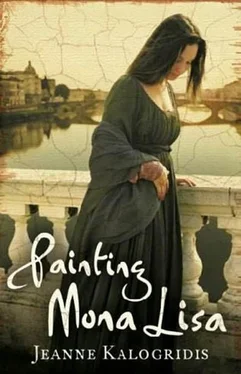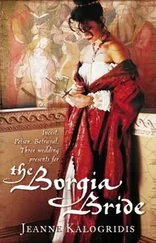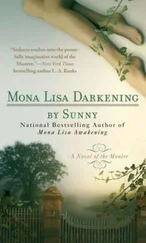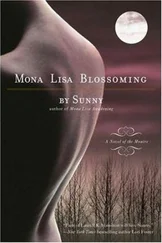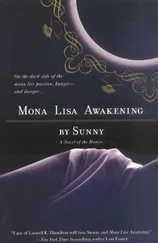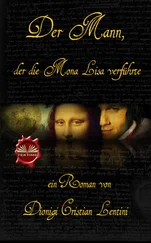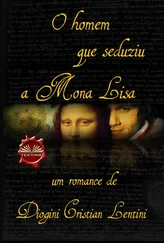“Yes,” he murmured. “That is the horror of it. It is better that they have died.” It was true; the executions had outraged everyone in Florence, even most of the piagnoni , who felt that the friar should have extended the same forgiveness he had freely dispensed in those days shortly after Piero was banished. Isabella, Elena, even the devout Agrippina, who had never dared risk my husband’s disapproval, now criticized Fra Girolamo openly.
“My mother said-” I began, and stopped, confused as to how to express my thought without sounding insane. “Years ago, my mother told me… that Savonarola would be brought down. By five headless men.”
“Your mother? Your mother spoke to you years ago of Savonarola?”
“I know it sounds very strange. But… I believe what she said was true. I think that this will cause Savonarola to be defeated. I think that he might even die.”
He grew motionless, intensely interested. “Did she ever say anything else about Fra Girolamo?”
“I believe she was speaking about him. She said, ‘Flames shall consume him until his limbs drop, one by one, into Hell! Five headless men shall cast him down!’”
What he said next astounded me. “He will die by fire, then. And these executions shall be his undoing. We will expect it, prepare for it.”
“You believe me,” I said.
“I believe your mother.”
I stared at him for so long that he lowered his gaze and said, with unexpected tenderness, “I told you that I had seen your mother once when she was pregnant with you.”
“Yes.”
“She told me she was carrying a daughter. She told me I would paint your portrait.” He hesitated. “I gave her the medallion, then, of Giuliano murdered. I asked her to give it to you, as a keepsake.”
I wanted suddenly to cry. I reached for his hand.
…
The Signoria tried desperately to win back the people’s love for Savonarola. It commissioned a medal to honor Fra Girolamo, with his alarming profile stamped on one side and on the other the image of a bodiless hand wielding a sword beneath the legend Ecco gladius Domini super terram cito et velociter . Worse, they encouraged him to defy the papal command that he should not preach. And so Francesco announced that he and I would go together to hear the prophet speak. My father was unwell and chose to remain at home.
The Lord Priors had decided that the most appropriate place for Savonarola’s return to the pulpit should be the Duomo, in order to accommodate the anticipated crowd; but when Francesco and I entered the cathedral, I was startled to discover it less than half full. Not everyone, it seemed, was eager to risk the possibility of excommunication by a wrathful Pope.
Francesco’s decision to attend the sermon provoked my curiosity. After the execution of the five Bigi , he had grown guarded where the subject of Savonarola was concerned. He no longer crowed about the successes of the piagnoni or spoke glowingly of the prophet, and when Agrippina let slip a critical remark about the friar, he said not a word. But our attendance at this defiant sermon was a show of the most fervent support. Or, more likely, a show of Francesco’s desire to monitor his mouthpiece and public reaction to him.
There was no weeping that day in the Duomo, no emotion in the air; the citizens were sober-eyed and cautious, and when Savonarola ascended to the lectern, they fell expectantly silent.
Fra Girolamo’s appearance was disturbing. He had been fasting during his months of silence and was even more haggard than before, his eyes dark, glittering holes in a face of yellowed ivory. He gripped the sides of the podium and stared out at the crowd; he exuded a vibrant misery, a desperation so profound he was compelled to share it or go mad. His breathing came so hard and furious that I could see the heaving of his chest from where I sat.
When he at last spoke, I was startled: I had forgotten how shrill and grating his voice was.
He began with his tone low, basely humble, as he recited the text. “Lord, how my tormentors are increased. How many are they that rise up against me.”
He bowed his head and, for a full minute, was too moved to speak. At last, he said, “I am merely a tool of the Lord. I seek no fame, no glory; I have begged God that I might live the simple life of a monk and take the vow of silence, never to darken the pulpit again. Those of you who have criticized me, who have said that I should have intervened in Florence’s politics of late: Do you not see that I held myself back out of humility, not cruelty? It was not I who wielded the axe, not I…” He squeezed his eyes shut. “O Lord, let me close my eyes and lay me down! Let me enjoy a silent season! But-God does not hear me. He will not let me rest!”
And the friar took a gulp of air that produced a ragged sob. “God will not let me rest. It is His will that I speak-speak against the princes of this world, without fear of retaliation.”
Beside me, Francesco tensed.
“Do I disrespect the papacy?” Fra Girolamo asked. “No! It is God’s own institution. Did not Jesus say, ‘On this rock I shall build my Church’? And indeed, all good Christians must honor the Pope and abide by the Church’s laws.
“But a prophet-or a pope-is merely an instrument of God, not an idol to be worshiped. And a prophet who lets his tongue be stilled can no longer be an instrument…
“Just as a pope who flouts the laws of God is a broken tool, a worthless instrument. If his heart is filled with wickedness, if his ears will not hear, how can God use him? He cannot! And so good Christians must discriminate between God’s laws and man’s.
“Alexander is a broken tool, and his excommunication of me heretical. You who have come today recognize this in your hearts. Those who have stayed away for fear of the Pope are cowards, and the Lord shall deal with them.”
I glanced over at my husband. Francesco’s eyes were cold, staring straight ahead. The Duomo was unusually silent and Savonarola’s words echoed off the high vault of the cupola.
The preacher sighed and shook his head ruefully. “I try to speak well of His Holiness, but when I come here-to God’s holy place-I am obliged to speak the truth. I must confess what God Himself has told me.
“‘Girolamo,’ He said, ‘if you are banned on Earth, then you will be blessed a thousandfold in Heaven.’”
The prophet lifted his arms to the ceiling and smiled up as if listening to God; and when God had finished speaking, the friar cried in answer: “O Lord! If I should ever seek absolution from this excommunication, send me straight to the bowels of Hell!”
I heard a rush of air in the cathedral. It came from the listeners, each letting go an outraged gasp. Francesco was among them.
Then the friar humbly bowed his head. When he looked back up at his congregation, he spoke in a reasonable, gentle voice. “But how shall I address my critics, who say I do not speak for God? I tell you now, the Lord in His infinite wisdom shall soon give a sign to silence them forever. I have no desire to tempt God-but if compelled, I will give Florence her miracle.”
Francesco was intense and distracted during the walk back to the carriage. He was so absorbed by his thoughts that when I spoke to him, he glanced up at me and for an instant seemed not to recognize me.
“Fra Girolamo needs a miracle,” I said, with cautious respect. “Let us hope God provides one soon.”
My husband gave me a searching look, but did not reply.
Damn Ascanio Sforza and his brother Ludovico! And damn the prophet’s letter to the princes! One of Ludovico’s agents procured it, and Cardinal Ascanio delivered it directly into the eager hands of the Pope. Our control of the Signoria cannot last. Even the piagnoni are divided now. If the friar continues as you say, a papal interdict of Florence is unavoidable .
Читать дальше
Конец ознакомительного отрывка
Купить книгу
